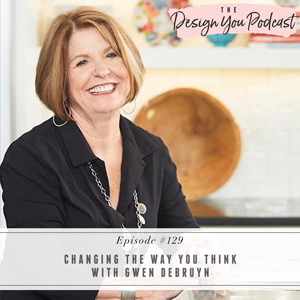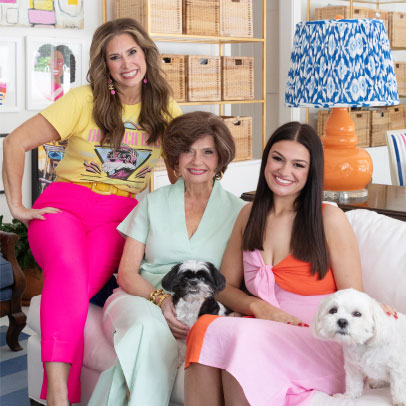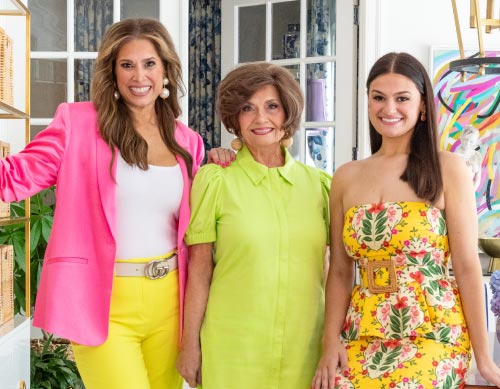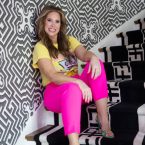
Hey friends! I am so excited to share today’s episode with you. For the next three episodes, I’ll be talking with some of my fabulous Design You members about their successes and endeavors, and how they’ve applied what they’ve learned in the Design You Membership to grow and thrive in their businesses and lives. Who better to kick things off, than the inspirational powerhouse that is Gwen DeBruyn?!
Gwen DeBruyn is a true entrepreneur. Owner of three businesses, Gwen splits her time running an Interior Design business, an independent boutique, and a vacation rental management company, on top of caring for her elderly mother and her ailing husband. She’s here today to share how learning to manage her mindset has empowered her to juggle everything life throws at her, whilst still living a happier, calmer life.
Join us on the podcast this week where we’ll discuss the importance of mindset work and why changing the way you think can lead to you taking actions that can improve your life. We’ll talk about the importance of self-compassion and listen to a real-life inspiring story of how Gwen used a shift in mindset to change her life. This is such a moving episode for you – sit back and enjoy!
If you want to keep this conversation going, you have to join my free Design You Podcast community on Facebook. We have great conversations over there about the podcast episodes and our podcast guests are in there too! So head on over and I’ll see you there!












